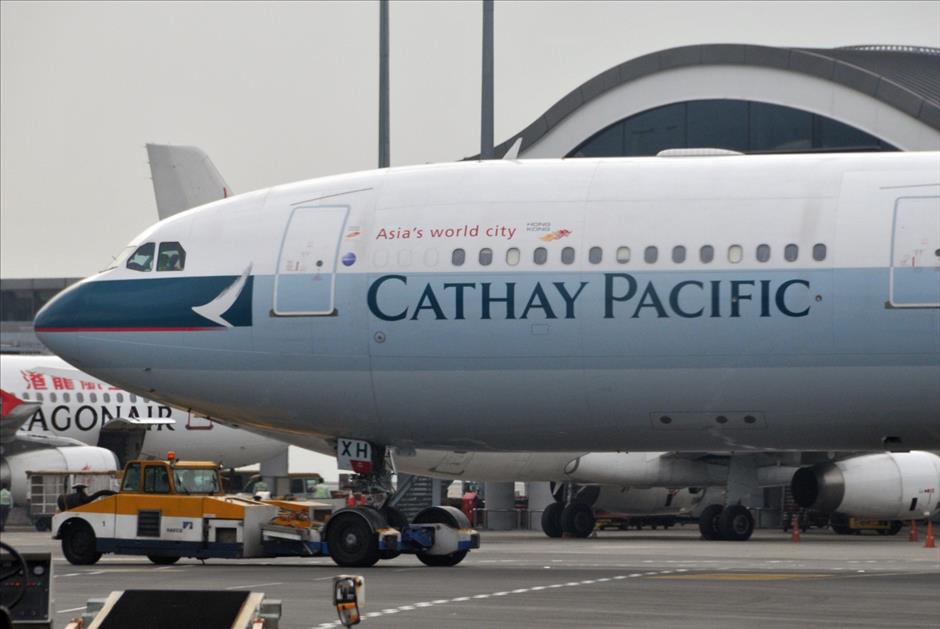Cathay Pacific can't afford to be tongue-tied with its language problem

A jet plane of Cathay Pacific Airways is being towed at the Hong Kong International Airport.
China is a country of diverse dialects. Mandarin is the official language but regionally, people still speak in local lingo, such as Shanghai, Cantonese, Sichuan and Hunan dialects. Sometimes, Chinese people even revert to English to make themselves understood.
Language appeared to be the crux of an incident this week, amid allegations that three cabin staff of Hong Kong flagship carrier Cathay Pacific Airways had insulted and discriminated against a mainland passenger on a flight to Hong Kong from the southwestern city of Chengdu in Sichuan Province.
The cabin crew were overheard making fun of a passenger, who apparently asked for a blanket but used the word "carpet" instead. They were overheard talking in the rear of the cabin, referring to the passenger and saying that "the carpet is on the floor" and "If you cannot say blanket in English, you cannot have it."
One of the flight attendants was also heard grumbling to her colleagues, in Cantonese, that an elderly passenger and grandson – who apparently went to the toilet while the "remain seated" sign was on – "cannot understand the human language.”
The offending cabin staff were sacked after a passenger complained in an online post that some crew members were disrespectful to passengers who did not speak English or the Hong Kong dialect of Cantonese, accusing cabin staff of making fun of passengers' English ability.
The airline issued an immediate apology. Shares in Cathay Pacific on the Hong Kong Stock Exchange have dropped 1.3 percent to HK$7.52 as of 9:30am on Wednesday following the incident.
Outrage over the incident lit up mainland social media, with some netizens reporting their own experiences of similar discrimination. That begs the question about the airline's language policies.
Even though Cathay Pacific posted a loss of HK$6.55 billion (US$834.4 million) for 2022, the airline has been quite successful in the past decade in focusing on transporting mainland travelers to Hong Kong and to global destinations beyond. It's a customer base the airline can't afford to offend.
Oddly, the language requirements for Cathay flight attendants don't reflect that reality. Cabin crew are required to have "strong English-speaking and writing capability," and linguistic proficiency in at least one additional Asian language, such as Japanese, Korean or Malaysian.
The ability to speak Mandarin is listed only as an "added advantage," according to a Shanghai Daily investigation. How curious! Mandarin is one of the most spoken languages in the world and one of six official languages of the United Nations.
Multilingual services are a given anywhere in international travel. Signs in most overseas airports and tourist spots feature Mandarin to aid the booming number of Chinese traveling abroad.
Hong Kong International Airport for years has been announcing flights to Shanghai in Shanghai dialect, and Mandarin instructions can also be heard at major Japanese airports and on some South Korean subway lines.
Major international airlines have long deployed Chinese flight attendants for flights to China. When I took an Air New Zealand's flight to Auckland from Shanghai several years ago, I was surprised to find that one of the flight attendants was a former high school classmate, who served customers in both Mandarin and Shanghai dialect.
European carriers, such as Lufthansa, Air France and British Airways, have also been utilizing Chinese cabin crew for a few years.
Cathay Pacific CEO Ronald Lam said in his apology for the recent incident said that the carrier will "uphold a zero tolerance approach and will not show mercy" for such violations.
Lam, who was appointed to the position in January 2023, has made the Greater Bay Area, which encompasses China mainland's Guangdong Province and the cities of Hong Kong and Macau, a strategic market for passenger services.
He promised to lead an interdepartmental overhaul to prevent similar incidents from occurring. The airline's bottom line may depend on that not being empty talk.
Cathay Pacific is 42 percent owned by Swire Pacific and 28 percent owned by Air China.















